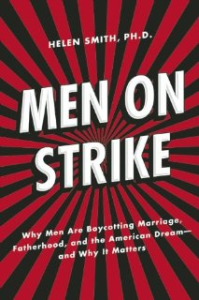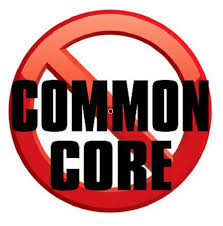We know they are all around, hiding just out of earshot. But we’re not talking about your average “Joe” from the south with no education, we’re talking about the American Physical Society, an organization representing 50,000 physicists. Read about their stance reversal here.
The American Physical Society, an organization representing nearly 50,000 physicists, has reversed its stance on climate change and is now proclaiming that many of its members disbelieve in human-induced global warming. The APS is also sponsoring public debate on the validity of global warming science. The leadership of the society had previously called the evidence for global warming “incontrovertible.”
Wow, from incontrovertible to basically very debateable. Must have been hitting them in the pocketbook to eat their words so dramatically. The opening salvo in the debate comes from a paper written by one Lord Monkton. Commenting on the paper….
Larry Gould, Professor of Physics at the University of Hartford and Chairman of the New England Section of the APS, called Monckton’s paper an “expose of the IPCC that details numerous exaggerations and “extensive errors”
In an email to DailyTech, Monckton says, “I was dismayed to discover that the IPCC’s 2001 and 2007 reports did not devote chapters to the central ‘climate sensitivity’ question, and did not explain in proper, systematic detail the methods by which they evaluated it. When I began to investigate, it seemed that the IPCC was deliberately concealing and obscuring its method.”
For jollies, here’s an excerpt from the paper…
Since absence of correlation necessarily implies absence of causation, Figure 7 confirms what the recent temperature record implies: the causative link between changes in CO2 concentration and changes in temperature cannot be as strong as the IPCC has suggested. The implications for climate sensitivity are self-evident. Figure 7 indicates that in the Cambrian era, when CO2 concentration was ~25 times that which prevailed in the IPCC’s reference year of 1750, the temperature was some 8.5 °C higher than it was in 1750. Yet the IPCC’s current central estimate is that a mere doubling of CO2 concentration compared with 1750 would increase temperature by almost 40% of the increase that is thought to have arisen in geological times from a 20-fold increase in CO2 concentration (IPCC, 2007).
How could such overstatements of individual feedbacks have arisen? Not only is it impossible to obtain empirical confirmation of the value of any feedback by direct measurement; it is questionable whether the feedback equation presented in Bode (1945) is appropriate to the climate. That equation was intended to model feedbacks in linear electronic circuits: yet many temperature feedbacks – the water vapor and CO2 feedbacks, for instance – are non-linear. Feedbacks, of course, induce non-linearity in linear objects: nevertheless, the Bode equation is valid only for objects whose initial state is linear. The climate is not a linear object: nor are most of the climate-relevant temperature feedbacks linear. The water-vapor feedback is an interesting instance of the non-linearity of temperature feedbacks. The increase in water-vapor concentration as the space occupied by the atmosphere warms is near-exponential; but the forcing effect of the additional water vapor is logarithmic. The IPCC’s use of the Bode equation, even as a simplifying assumption, is accordingly questionable.
and his conclusion…
In short, we must get the science right, or we shall get the policy wrong. If the concluding equation in this analysis (Eqn. 30) is correct, the IPCC’s estimates of climate sensitivity must have been very much exaggerated. There may, therefore, be a good reason why, contrary to the projections of the models on which the IPCC relies, temperatures have not risen for a decade and have been falling since the phase-transition in global temperature trends that occurred in late 2001. Perhaps real-world climate sensitivity is very much below the IPCC’s estimates. Perhaps, therefore, there is no “climate crisis” at all. At present, then, in policy terms there is no case for doing anything. The correct policy approach to a non-problem is to have the courage to do nothing.
Oh, and I just noticed this statement in the acknowledgements section, just below the conclusion:
Italics and bold are my responsiblity.
As Newmarks Door says, Al Gore, call your office!










There's a response from APS about the Hal Lewis resignation deconstructed at WUWT check it out! (10/13)
The MSM will try to keep this quiet just like the previous global warming scandal.
Readers not familiar with the 10:10 dust up, see the videos below.
While watching the first one, ask yourself if it's sincere or if 10:10 is being pranked on by skeptics.
Keep watching until you're sure, and then watch more.
CONTENT WARNING: a lot of fake gore, also the interview of Richard Curtis includes a shocking juxtaposition of real violence.
http://www.youtube.com/view_play_list?p=7C79DEF1EE25E880
Note: the resignations of Chris Landsea and Roger A Pielke SR. both hint at conspiracy.
Landsea resigned because of an unethical press conference that was likely used by Al Gore as a green light to build his movie around Hurricane Katrina.
Pielke resigned because while lead author for a major climate report, scientists undermined him by working behind his back. These incidents are well known and not hard to research.
———
Even if you are familiar with the 10:10 thing, there's a variety of over the top eco stuff in the playlist.
————-